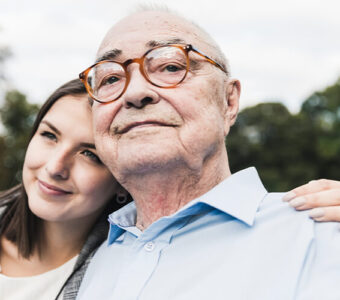Our brain is the epicenter of what we do and who we are. For people with neurological conditions like multiple sclerosis (MS) or Parkinson’s disease, working to strengthen both body and mind — a practice known as neuro wellness — can play a big role in managing the condition.
Lauren Esposito, manager of the OhioHealth Neuroscience Wellness Center, shares how the facility uses proven tactics to help people with neurologic conditions.
“Across the board, research has shown that positive results are possible when we help people with neurological conditions push themselves to their full potential,” says Esposito. “Neuro wellness classes, high-intensity training for Parkinson’s or our MS wellness program are all resources to help our members maintain their mobility and cognition.”
Movement and exercise
Regular exercise is essential to overall health and wellness. When it comes to managing neurologic conditions, preserving strength and balance can help reduce the impact of symptoms such as cognitive and motor fatigue.
The center is an accessible gym for people with neurological conditions who might be uncomfortable in a typical gym environment. To help combat any anxiety, exercise physiologists at the center work with patients to set goals. They also provide an overview of the equipment and classes that are a good fit for each person.
“At OhioHealth, our comprehensive training goes beyond what you would find at a typical gym,” says Esposito, “We have specialty programming that includes yoga, Pilates and dance classes, as well as group fitness classes taught by specialty-trained fitness instructors.”
The team at the Neuroscience Wellness Center offers rehabilitation, as well as physical, occupational and speech therapy. Each specialist reviews different methods for working with people who have neurologic conditions as part of their training. Patients can also visit the center with their physical therapist, which can boost their confidence and give them the chance to meet other members.
Train your brain
Cognitive exercises for neurology patients can help manage conditions such as MS, Parkinson’s disease or a stroke. Classes that focus on “brain games” help patients with memory processing and multitasking. Gardening classes help members with planning, designing and maintaining an outdoor space. Other programs focus on functional movement, which can ease the stress of daily living activities such as bathing, dressing or preparing meals.
“We work together to incorporate everyday activities into different forms of therapy and then make it fun,” says Esposito. ”Brain health exercises can be very beneficial when it comes to preserving verbal skills and preventing cognitive decline.”
Community support
Having a neurological condition can leave many people feeling isolated or lonely. Esposito says that finding a supportive community can help create bonds and a commitment to continuing rehabilitation. Additionally, building relationships with people who have had similar experiences can have a positive impact on how you manage your condition.
“It’s so important to have a community of people who understand what you’re going through and what it’s like to live with a neurological condition,” says Esposito. “If you’re having a bad day, it can be so helpful to talk with someone who understands. The element of community adds an extra layer of support.”
If you’re interested in checking out the OhioHealth Neuroscience Wellness Center, you can schedule a tour to see it for yourself!





